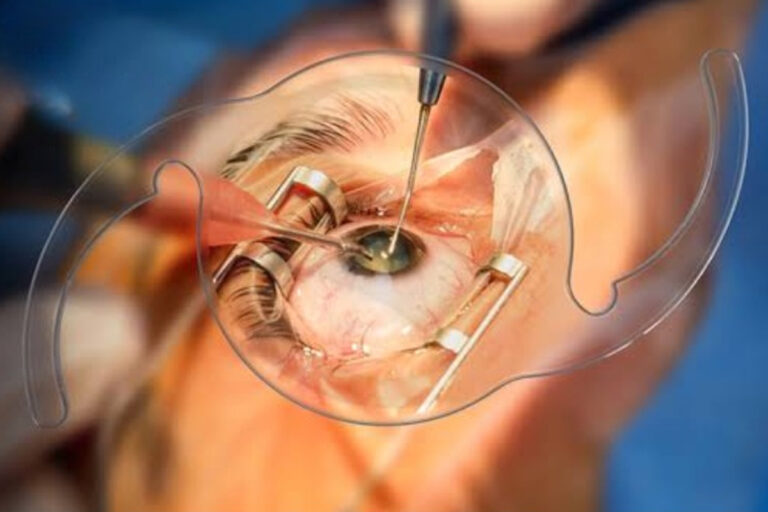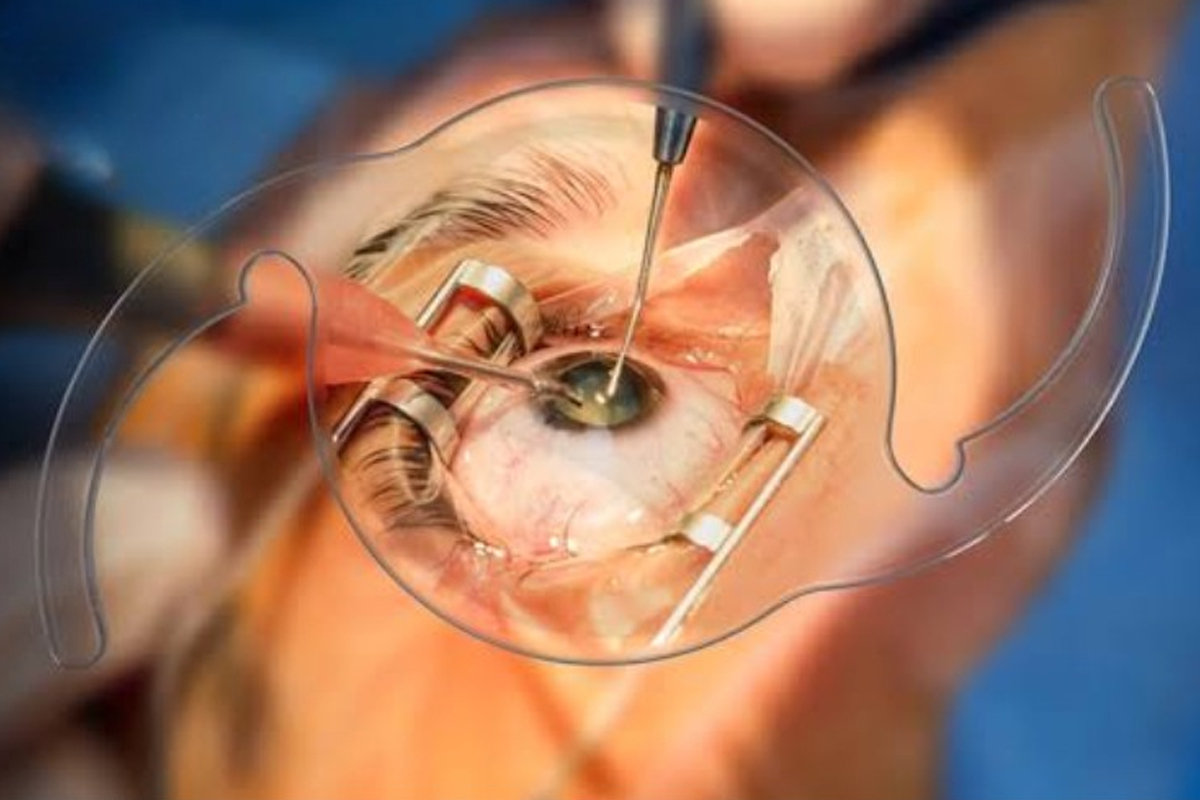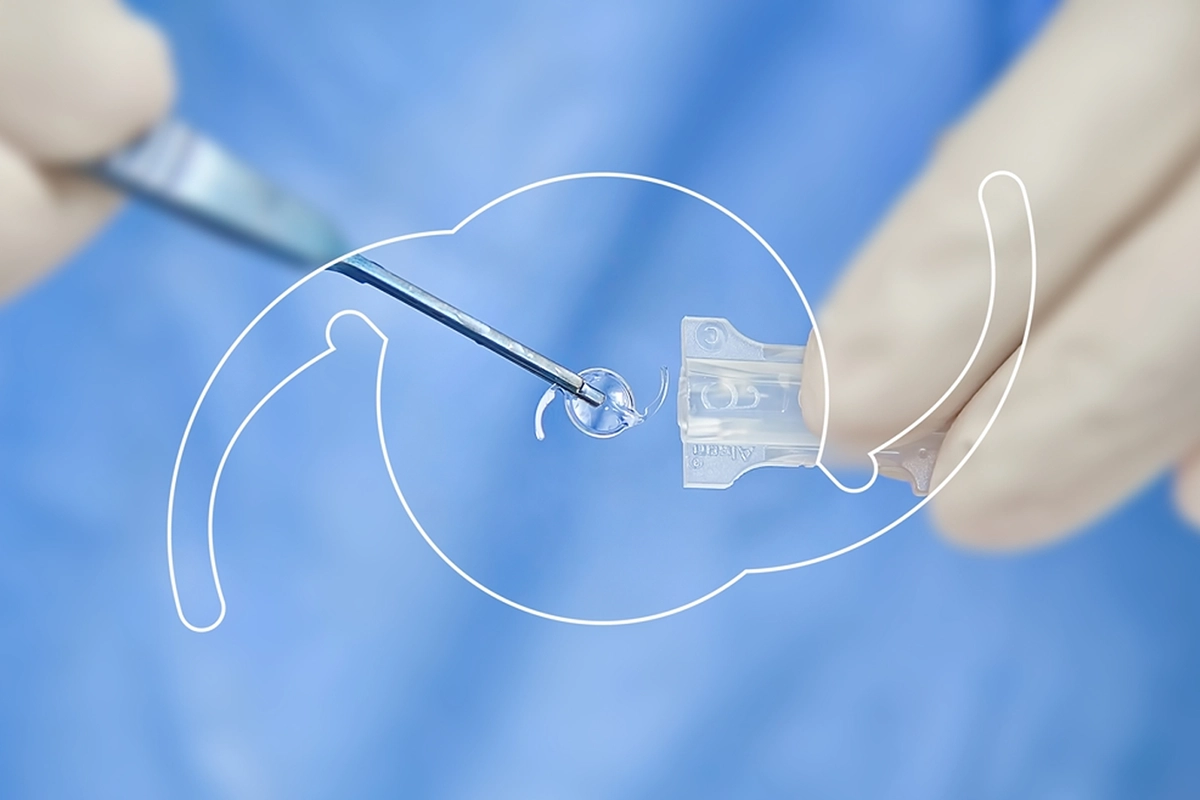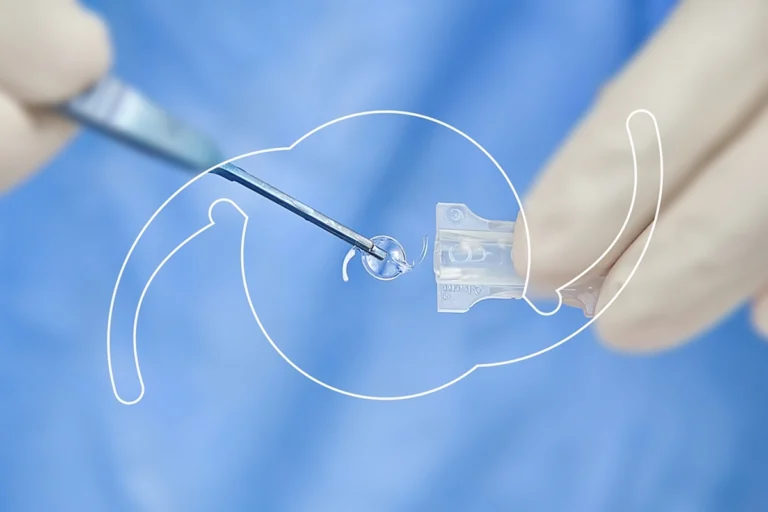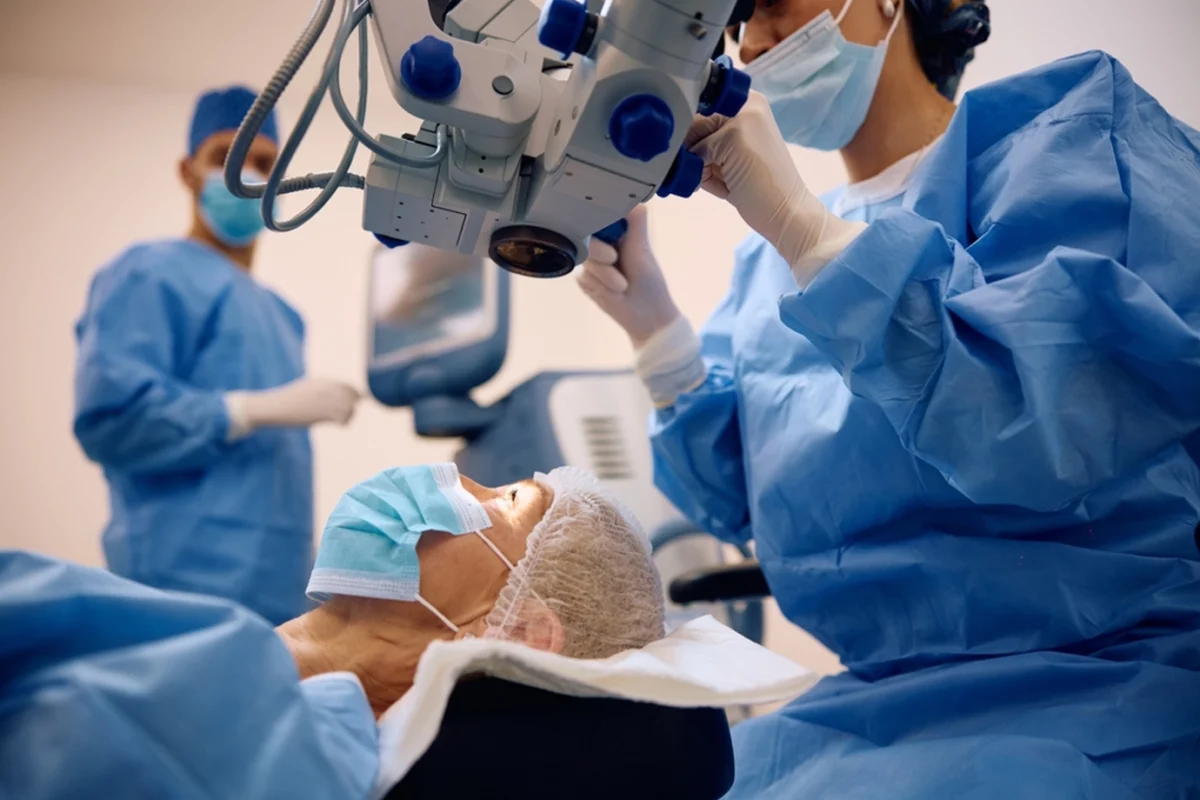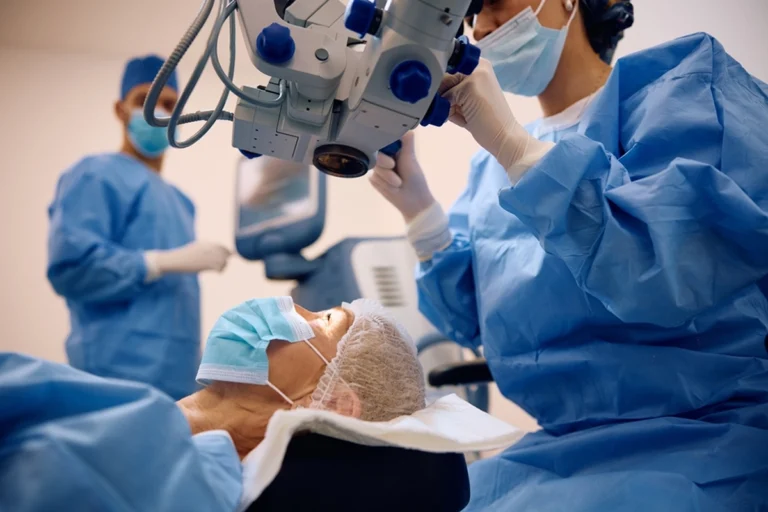Diabetes is a growing systemic disease, and many patients undergoing cataract surgery also have diabetic eye disease. Modern cataract surgery can restore excellent vision and correct myopia, hyperopia, and astigmatism in otherwise healthy eyes. However, if there is coexisting diabetic eye disease, cataract surgery may place additional strain on the eye, leading to macular edema, progressive retinopathy, and limited vision.
Although you can still achieve excellent results from cataract surgery in diabetic patients, these patients are at a higher risk of complications and subsequent vision loss. Diabetic patients can achieve near-perfect vision after cataract surgery with careful preoperative planning. And with attention to detail during phacoemulsification and close postoperative supervision.
Today, you will learn more about how diabetes affects your eyes and how cataract surgery works on diabetic patients. Here’s a detailed account of the subject and why you should consider all factors before opting for eye surgery. Moreover, comprehensive consultation with your doctor can change your understanding and give you a better perspective.
What Is Diabetic Cataract?
Diabetes is a significant contributor to the development of cataracts. Although the reasons for this are still unknown, according to some studies, people with diabetes mellitus have a 60% increased risk of developing cataracts. Maintaining proper control of your blood sugar levels, as with most diabetes complications, will help to reduce your risk.
Furthermore, research indicates that people with type 2 diabetes who significantly reduce their HbA1c level by just 1% minimize their risk of cataracts by 19%.
Cataract treatment has come a long way in recent years. Surgery is frequently recommended, with the lens being removed and replaced with an artificial one. Cataract surgery is widely recommended and performed regularly.
Why Do Diabetics Get Cataracts?
Diabetes affects your body in several ways. Therefore, it can have an impact on your eyes as well. Individuals with diabetes are not only more prone to developing cataracts, but they are also much more likely to develop them at a younger age and to progress more quickly than people without diabetes.
The aqueous humor, the fluid that fills the front of the eye, provides oxygen and glucose to the lens of your eye. If you do not control your glucose levels, such as a diabetic patient, the sugar levels can rise, causing the lens to swell. As a result, your glasses prescription may change. Furthermore, the lens contains an enzyme that converts glucose to sorbitol. Sorbitol accumulation in the lens can harm cells and other proteins, making the lens more opaque.
So, if you have diabetes, you should get your eyes checked at the earliest to avoid any uncalled-for surprises in the future.
Can Diabetes Affect Your Eyes?
The straight answer is yes! Diabetes or high blood sugar can harm your eyes, leading to several eye conditions like cataracts, glaucoma, blurry vision, or retinopathy. If you have diabetes at a younger age, it can give rise to problems in the future. The only way out for you is to have your eyes checked regularly. So can nip the issue in the bud as and when it arises.
Apart from cataracts, diabetes can cause other eye conditions, such as:
Diabetic patients are more likely to develop glaucoma, which can manifest itself in a variety of ways. When fluid does not drain properly, pressure builds up inside your eye. It can cause nerve and blood vessel damage, as well as vision changes.
Don’t go out and buy new glasses the moment you notice that things are blurry. It could be a minor issue caused by high blood sugar. Your lens may swell, impairing your ability to see. To correct it, you must return your blood sugar to the normal range (70-130 milligrams per deciliter, or mg/dL, before meals, and lower than 180 mg/dL 1 to 2 hours after a meal).
Diabetic retinopathy gets caused by damage to the small blood vessels in your retina. It is associated with high blood sugar levels. You could go blind if you do not catch it and treat it right away. The longer you have diabetes, the more likely it is that you will develop it again. You can reduce your chances by keeping your blood sugar under control.
The natural internal lens of your eye, like a camera, allows you to see and focus on an image. When that lens becomes cloudy, as if it were a smudged window, a cataract has formed. They can happen to anyone, but people with diabetes are more likely to get them and have them worsen faster.
Therefore, if you do not want diabetes to impact your vision adversely, make sure you have your eyes checked regularly and lower your blood sugar levels to avoid any drastic consequences.
Can A Diabetic Patient Have Cataract Surgery?
Every cataract surgery patient has a preoperative evaluation, but diabetic patients can expect a more thorough assessment. There will be a greater emphasis on tests that assess the extent of diabetes-related eye changes. If a cataract patient reports visual problems affecting their quality of life, a doctor will run additional tests. It is to ensure that the cause of vision loss is cataract and not any other.
For instance, diabetic retinopathy affects some diabetic patients, which occurs when high blood sugar levels damage blood vessels in the retina. As a result, a retina specialist may get involved in the evaluation process before cataract surgery. A thorough eye exam may reveal other pathologies, in which case the doctor may consider a treatment plan before cataract surgery.
That said, a diabetic patient can have cataract surgery but with extra tests and evaluations to minimize risks during the process.
Is Cataract a Complication Of Diabetes?
Yes, diabetes can cause cataracts, and their removal may enhance your blurred vision. However, due to other complications, cataract removal may get slightly unmanageable. Essentially, you will find a two-fold impact of cataracts.
- Due to the weak view of the retina, laser and intravitreal injections may become impossible. They treat diabetic visual complications such as diabetic retinopathy or maculopathy. Without treatment, these conditions can worsen to the point where potential vision is so poor that cataract removal will not improve vision.
- Cataract-related vision loss complicates the timely administration of blood glucose-controlling medication (blood sugar). It is especially true for those who must use insulin injections.
Unfortunately, cataracts tend to develop early in diabetics and progress quickly if blood sugar control is poor. It is most likely due to osmotic changes occurring within the lens, typically resulting in cortical or posterior subcapsular lens opacities.
Is Cataract Surgery Safe For Diabetics?
When evaluating cataract patients who also have diabetes, doctors must consider several factors. The first of which is how well diabetes gets controlled. If your blood glucose levels are too high, your doctor may advise you to postpone surgery as it may not be safe to perform.
Cataracts develop at a younger age in diabetics, and it may be preferable in some cases to perform cataract surgery at an earlier stage in cataract development to reduce the risk of complications. Cataract surgery can cause diabetic retinopathy to progress, but in eyes with minimal diabetic changes, cataract surgery is less likely to cause this progression. As a result, you may get advised on surgery at an earlier stage.
Cataract surgery entails removing the eye’s natural lens and replacing it with an artificial lens, known as an intraocular lens or IOL. Doctors avoid certain types of IOLs in diabetic patients in some cases. Diabetic patients will be able to discuss IOL options with a qualified eye doctor.
Read more: How to Choose Best Hospital for Cataract Surgery in India?
What Is The Best Treatment For Diabetic Retinopathy?
Diabetic retinopathy may or may not threaten your vision. However, if it does, seeking an expert ophthalmologist’s help will do wonders in keeping your eyes in check. When it comes to treating diabetic retinopathy, if it affects your sight in any way, the following treatments will work in your favor (after consulting your eye doctor, of course):
- Laser Treatment – It is used to treat the growth of new blood vessels at the back of the eye (retina). It is in cases of proliferative diabetic retinopathy and to stabilize some cases of maculopathy
- Eye Injections – They are used to treat severe maculopathy threatening your eyesight
- Eye Surgery – It helps remove blood or scar tissue from the eye if laser treatment does not yield proper results because retinopathy is too advanced
Following the procedure, you will most likely have blurred vision. It should gradually improve, though it may take several months for your eyesight to return to normal. During your recovery, your surgeon will advise you on any activities you should avoid.
Can Diabetics Do Cataract Eye Surgery?
Almost everyone eventually develops age-related cataracts. More than half of people over 65 years of age have a cataract, and the prevalence rises with each decade of life. Since diabetes has become more common, many diabetic patients seeking cataract surgery question if doctors can h3restore vision loss due to cataracts.
Although there may be an increased risk of complications and some limitations, diabetic patients can benefit from cataract surgery. The doctor will go over the evaluation process with you, discuss the factors to consider, and assist you in your recovery from surgery.
Can Type 1 Diabetics Get Cataract Eye Surgery?
The risks associated with cataract eye surgery for Type 1 diabetes patients remain plenty. However, with careful evaluation and procedural follow-up, you can get it done. Initial tests and assessments will give an insight into the condition of your eye and help your doctor create a treatment plan for you.
Depending on the extent to which your eye has been affected, your ophthalmologist will recommend the necessary treatment. If cataract removal through laser, injections, or surgery is possible, your eye doctor will proceed with the same.
Can Type 2 Diabetics Get Cataract Eye Surgery?
Since you can improve your blood sugar levels in case of Type 2 diabetes, some lifestyle changes or modifications will work in your favor. Especially in the case of cataract eye surgery, it can help. Sometimes, cloudy vision problems can get solved with cataract surgery, while at other times, your eye doctor may recommend a different treatment. However, if you have Type 2 diabetes, you can get cataract eye surgery if the doctor prescribes it.
Remember, high blood sugar can lead to several eye conditions, including cataracts. However, the treatment may not necessarily entail eye surgery. Therefore, it deems essential that you consult a certified and qualified ophthalmologist with years of experience in the field to assist you.
How Effective Is Laser Treatment For Diabetic Retinopathy?
In the advanced stages of diabetic retinopathy, laser treatment gets used to treat new blood vessels at the back of the eyes. It gets done because the new blood vessels are usually weak and frequently cause eye bleeding. Treatment can help stabilize the changes in your eyes caused by diabetes and prevent your vision from deteriorating, but it will not usually improve your vision.
Laser treatment involves shining a laser into your eyes, and you will be given local anesthetic drops to numb your eyes. Doctors use eye drops to widen your pupils and special contact lenses to hold your eyelids open and focus the laser onto your retina. The process isn’t usually painful. However, you may feel a prickly sensation when specific areas of your eye get treated.
The entire procedure takes around 20-40 minutes usually and gets carried out on an outpatient basis. In the coming days, you may require to visit your eye doctor more than once to make sure the procedure went well.
Factors To Consider For Diabetic Patients Contemplating Cataract Surgery
When evaluating cataract patients with diabetes, your ophthalmologist will have many factors to consider, such as:
- Diabetes control
- Delaying surgery in case of high blood glucose levels
- Performing cataract surgery early to reduce risks of complications
Cataract surgery involves the removal of the natural lens of your eyes. It gets replaced with an artificial lens – intraocular lens or IOL. In specific cases, the eye doctor may have to avoid some types of IOLs in patients who have diabetes. You can discuss your IOL options, if you have diabetes, with a qualified eye doctor.
Cataract Surgery Recovery For Diabetic Patients
Diabetic patients who have cataract surgery may require more supervision and evaluation afterward. To prevent and treat fluid buildup (macular edema) and swelling or inflammation, you may get prescribed topical steroids and anti-inflammatory drugs. Diabetes patients are more likely to develop a condition known as posterior capsule opacification, also known as a “secondary cataract.” Although not a cataract, this condition can give you an impression that the cataract has returned; however, it is usually treatable with a routine outpatient laser procedure.
Even though having diabetes presents unique challenges and may result in a more prolonged recovery time, thorough pre-and post-treatment can lead to good cataract surgery results.
Conclusion
Diabetes can lead to several challenges, and cataract surgery may just become one of them. However, if you follow a proper preoperative and postoperative course, you can deal with these tests with gumption. While the difficulties may seem plenty, a significant part of your surgery and recovery will only get based on your ophthalmologist’s diagnosis and treatment.
Moreover, consider your daily actions and how they might affect your recovery. In the first few days after your cataract surgery, your eye needs extra care and precautions, and eventually, the rest will fall into place.
Remember only to reach out to the most advanced eye-care hospitals and clinics for your cataract surgery if you have diabetes or even otherwise. The experts at Dada Laser Eye Institute will guide you through the entire process. The doctors explain the risks involved and share their knowledge about cataracts before and after your treatment. You can get in touch with the experts and get proper consultation by giving us a call at (+91) 992 299 5549 or visit https://ladilaservision.com/ to fill out a form.
